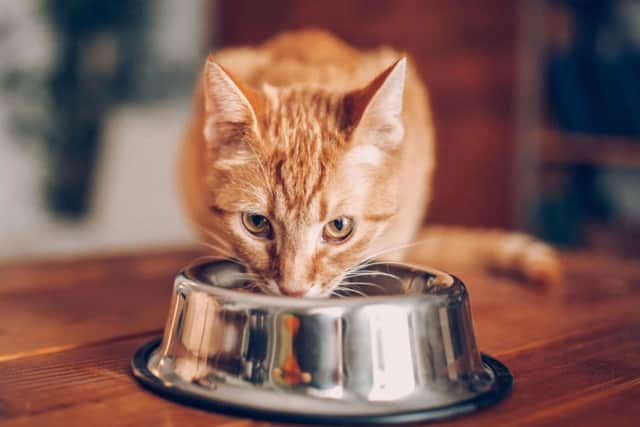Cat carrying Covid-19 discovered by Glasgow scientists believed to be the first in the UK
A team of scientists in Glasgow has identified a cat carrying the SARS-CoV-2, the virus which causes Covid-19.
Researchers from the University of Glasgow Centre for Virus Research and its school of veterinary medicine found the infected animal – believed to be the first in the UK – during a joint research programme which has seen hundreds of feline samples tested.
Advertisement
Hide AdAdvertisement
Hide AdFollow-up tests by the UK’s animal and plant health agency confirmed the cat had tested positive and Glasgow scientists have now completed a full genome sequencing of the virus carried by the infected cat.


Professor Margaret Hosie, from the University of Glasgow Centre for Virus Research, is one of the scientists working on this project.
She said: “There have been sporadic reports of cats from Covid-19 households in Hong Kong, Belgium, France, Germany, Switzerland, Spain and the USA that tested positive for SARS-CoV-2 and were presumed to be infected from their owners, but this is the first report of an infected cat in the UK.
“All available evidence suggests that the cat was infected from its owners, who had previously tested positive. The cat and its owners have since made a full recovery and there was no transmission of the virus to other animals or people in the household.”
Professor William Weir, of the university’s vet school, added: “The factors that govern why one species is susceptible to the Covid-19 virus while others are more resistant are currently unknown, but will likely reveal more about how this virus spreads and causes disease.
“At present, there is no evidence that cats, dogs or other domestic animals play any role in the epidemiology of human infections with SARS-CoV-2.
“Furthermore, the significance of SARS-CoV-2 as a feline or canine pathogen is unknown as cats and dogs with reported infections usually recover and there has been no evidence of transmission occurring between cats or dogs in the field.”
During the pandemic, naturally occurring infections have been reported in pet and stray cats as well as dogs. Ferrets and hamsters have also been found to be susceptible to the virus, but not ducks, chickens or pigs.
Reporting from PA
A message from the Editor:
Advertisement
Hide AdAdvertisement
Hide AdThank you for reading this story on our website. While I have your attention, I also have an important request to make of you.
With the coronavirus lockdown having a major impact on many of our advertisers - and consequently the revenue we receive - we are more reliant than ever on you taking out a digital subscription.
Subscribe to scotsman.com and enjoy unlimited access to Scottish news and information online and on our app. With a digital subscription, you can read more than 5 articles, see fewer ads, enjoy faster load times, and get access to exclusive newsletters and content. Visit https://www.scotsman.com/subscriptions now to sign up.
Our journalism costs money and we rely on advertising, print and digital revenues to help to support them. By supporting us, we are able to support you in providing trusted, fact-checked content for this website.
Comments
Want to join the conversation? Please or to comment on this article.